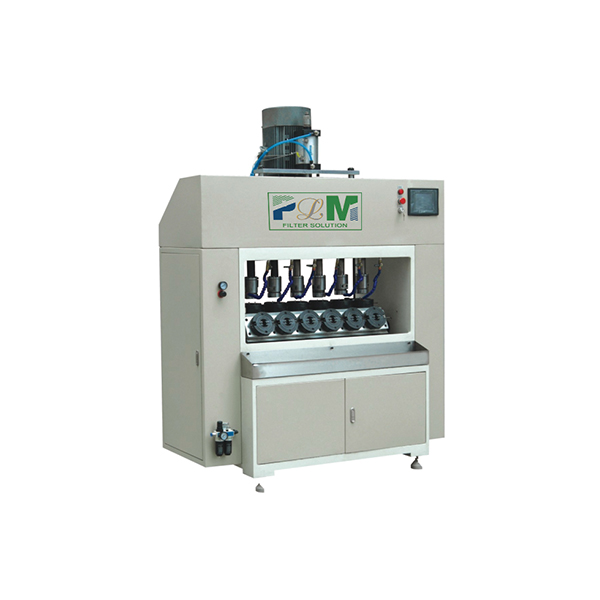Aug . 19, 2024 19:34 Back to list
Battery Water Supply Systems for Equipment Manufacturers and Users in Various Industries
The Evolution and Significance of Battery Water Equipment Manufacturers
In an era where renewable energy and electric vehicles are at the forefront of technological developments, the importance of battery water equipment manufacturers has become increasingly pronounced. These specialized companies play a critical role in the maintenance and functionality of lead-acid batteries, which are pivotal for a wide array of applications—from automotive use to energy storage systems supporting solar power.
Battery water equipment primarily refers to the systems and tools used for the maintenance and replenishment of distilled water in lead-acid batteries. This is essential because lead-acid batteries require a specific level of electrolyte to function optimally, and water is a key component of this solution. As batteries age and undergo numerous charge and discharge cycles, they can lose water through evaporation and electrolysis. Hence, battery water equipment manufacturers innovate and produce devices designed to simplify the process of maintaining the correct electrolyte level.
One significant advancement that these manufacturers have contributed to is the development of automated watering systems. These systems enable users to easily monitor and replenish the water levels in multiple batteries, ensuring operational efficiency and prolonging battery life. With the growing complexities associated with large battery banks used in commercial and industrial sectors, automated watering solutions have become a necessity. They not only save time and labor but also enhance safety by minimizing the risks involved with manual checking and filling, especially in high-capacity operations.
In addition to watering systems, battery water equipment manufacturers also produce various accessories that aid in battery maintenance. This includes hydrometers for measuring the specific gravity of battery electrolytes, which is a crucial indicator of battery health. Furthermore, manufacturers are increasingly focusing on creating eco-friendly products, aligning with global sustainability trends. For instance, some companies have introduced systems that recycle excess water used in the maintenance process, thus reducing waste and promoting environmental responsibility.
battery water equipment manufacturers

The rise of electric vehicles (EVs) and the increasing adoption of renewable energy sources like solar and wind power have spurred demand for reliable and efficient battery systems. Consequently, battery water equipment manufacturers have witnessed a surge in demand for their products. This growth is not solely limited to the automotive sector; it spans across telecommunications, uninterruptible power supplies (UPS), and various industrial applications. The versatility of lead-acid batteries in energy storage and power supply solutions makes them indispensable despite the emergence of newer battery technologies, such as lithium-ion.
Moreover, the global shift towards sustainable energy solutions has transformed the landscape of battery maintenance. Manufacturers are investing in research and development to enhance the efficiency and reliability of their equipment. Innovations such as smart watering systems integrated with IoT (Internet of Things) technology are on the horizon. These systems allow users to remotely monitor battery health and maintenance needs via smartphone applications, making it easier to manage battery performance across large networks.
As the market continues to evolve, battery water equipment manufacturers are faced with both challenges and opportunities. They must adapt to the rapid advancements in battery technology while maintaining product reliability and customer satisfaction. Collaborating with battery manufacturers to develop more integrated solutions could prove beneficial and help streamline operations across various industries.
In conclusion, battery water equipment manufacturers are crucial players in the maintenance ecosystem of lead-acid batteries. Through innovation and a commitment to sustainability, they are contributing to a more efficient and reliable energy future. As our reliance on batteries grows, the role of these manufacturers will undoubtedly expand, making their impact on the energy landscape both significant and essential.
-
OEM PLXB-1 PU Pack Trimming Machine - High Precision, Durable, Cost-Effective Solutions
NewsJun.10,2025
-
High-Performance In Line Fan Filter Trusted In Line Fan Filter Company & Products
NewsJun.10,2025
-
High-Efficiency Water Filter Making Machine Reliable Companies & Products
NewsJun.10,2025
-
Premium Metal Fuel Filter Durable & Efficient for Engine Protection
NewsJun.10,2025
-
Premium OEM 304 Rimmed Filter Disc Custom Stainless Steel Filters
NewsJun.10,2025
-
China PP Air Filter Production Line Automated & High-Efficiency Solutions
NewsJun.10,2025
